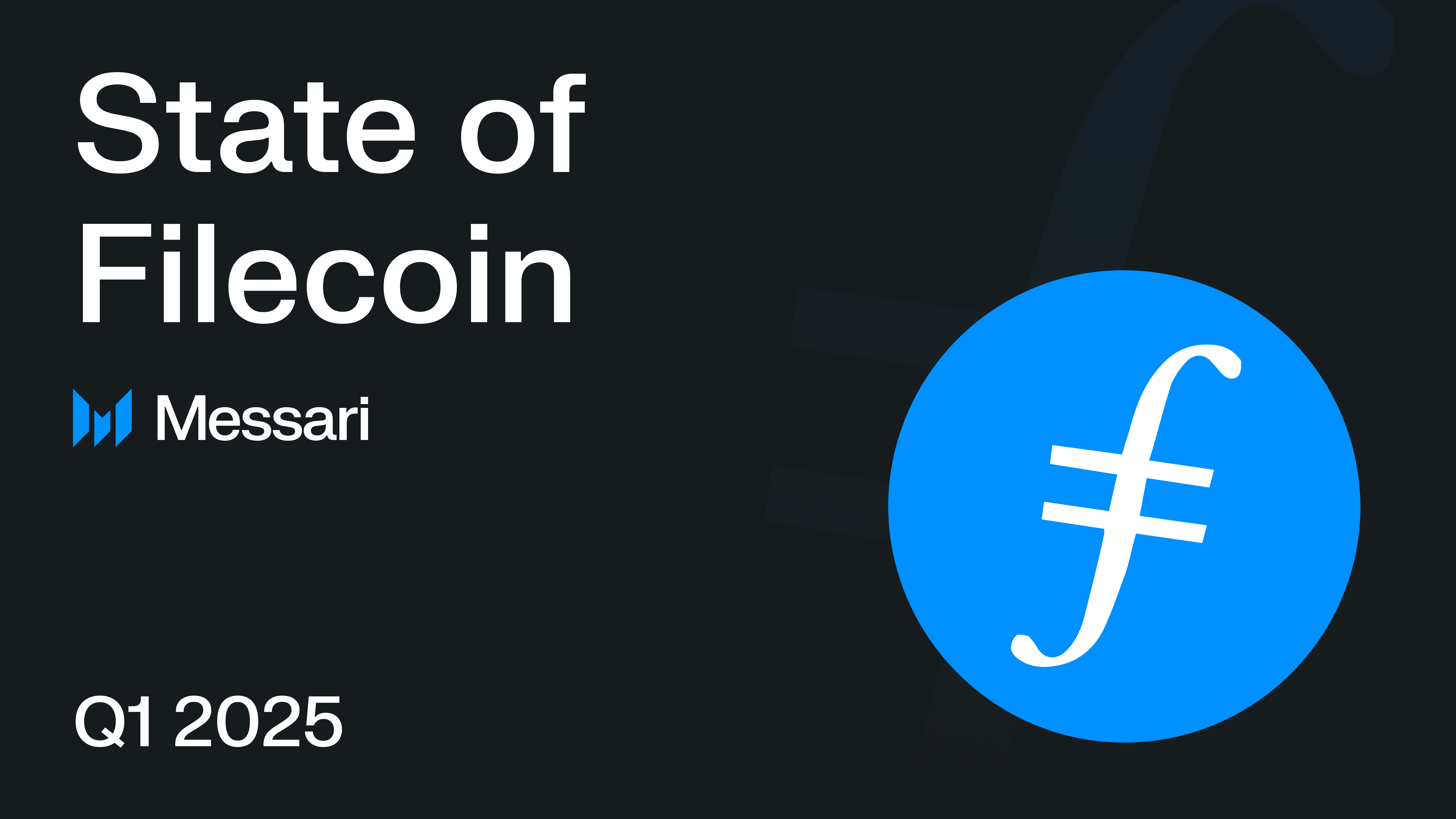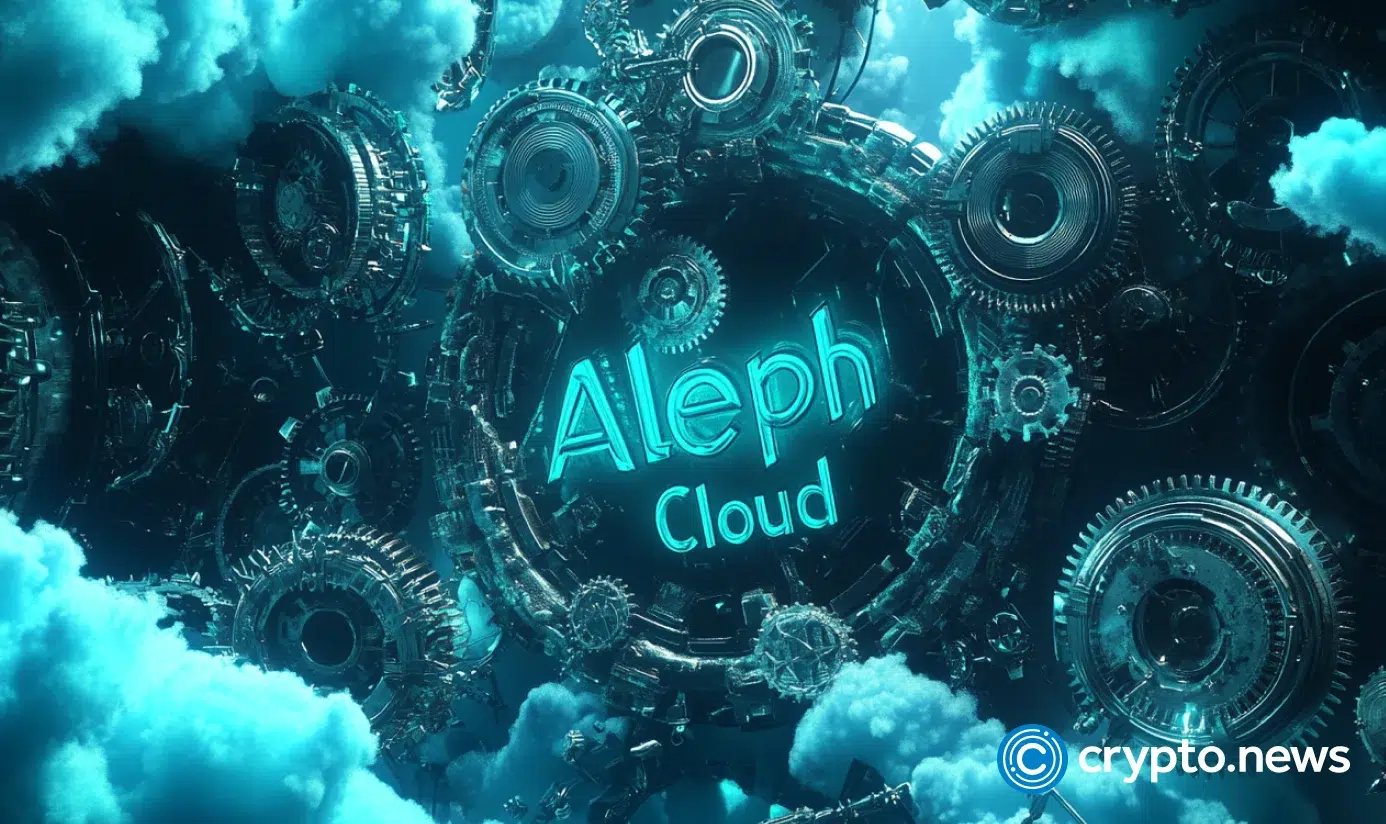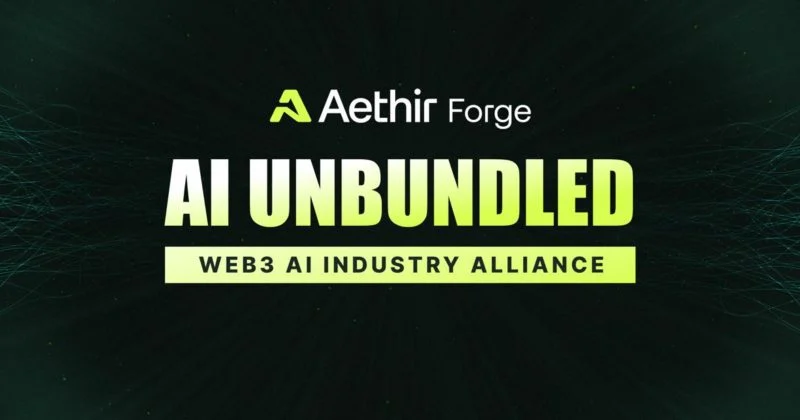Latest Filecoin News

2 days ago
Top Crypto Tokens to Watch in 2025: BlockDAG, Toncoin, Litecoin, and Filecoin
As 2025 approaches, the cryptocurrency market is abuzz with speculation about which tokens will emerge as top performers this year. Investors are shifting their focus from mere hype to tangible progress, adoption rates, and strategic market positioning. Among the frontrunners, BlockDAG is gaining significant attention, alongside established players like Toncoin, Litecoin, and Filecoin, each offering unique advantages worth monitoring.
BlockDAG is making waves with its ambitious exchange strategy, planning to list on 20 centralized exchanges on June 13. This aggressive move is not just about visibility; it signifies a readiness to expand its market reach. With over $273 million raised and a presale currently underway, BlockDAG has already sold more than 21.4 billion coins, yielding substantial returns for early investors. Its hybrid model, which combines DAG scalability with Proof-of-Work reliability, is attracting both developers and miners, positioning it as a serious contender in the crypto landscape.
On the other hand, Litecoin remains a reliable choice in the crypto sphere, known for its fast transactions and low fees. Its potential in cross-border payments is gaining traction, appealing to investors seeking a blend of legacy trust and future utility. Meanwhile, Toncoin benefits from its integration with Telegram, providing seamless access to millions of users and enhancing its adoption prospects. Lastly, Filecoin is carving out its niche in decentralized storage, catering to the growing demand for secure data solutions. Each of these tokens presents distinct opportunities, but BlockDAG's early momentum and strategic roadmap may give it the edge in the competitive crypto market of 2025.

7 days ago
Ben Goertzel: Pioneering Decentralized AI for a Better Future
Ben Goertzel, a pioneer in artificial intelligence, has been advocating for decentralized AI since he wrote his first line of code 30 years ago. As the world stands on the brink of achieving Artificial General Intelligence (AGI), Goertzel emphasizes the importance of decentralization in ensuring that this powerful technology benefits humanity rather than serving centralized powers. At the recent Consensus conference in Toronto, he expressed optimism that AGI could be launched within the next one to three years through his project, SingularityNET, which aims to create a global marketplace for AI services. The project has made significant strides, including partnerships with Mind Network and Filecoin Foundation, a $53 million investment in a modular supercomputer, and a token merger with Ocean Protocol and Fetch.ai.
Goertzel's vision for decentralized AI is rooted in his early experiences with the internet, which he initially saw as a decentralized platform. However, he notes that the rise of tech giants like Google and Facebook has led to a more centralized internet, which undermines the foundational principles of decentralization. He argues that for AGI to be a force for good, it must be built on decentralized architecture from the outset. This philosophy is reflected in the design of SingularityNET, Hyperon, and the upcoming ASI Chain, which is tailored for decentralized AI applications. Goertzel believes that the trajectory of the post-AGI era will significantly differ based on the role of decentralized ecosystems in its development.
In addition to his work in AI, Goertzel has a history of exploring decentralized money concepts dating back to the 90s. Although he and his peers initially dismissed the practicality of decentralized transactions due to concerns over speed and cost, the emergence of Bitcoin has validated some of his early ideas. He humorously reflects on the missed opportunities of that era, acknowledging that their lack of business acumen prevented them from envisioning the darker applications of decentralized money. Today, Goertzel's commitment to decentralized AI continues to gain traction, positioning him and his initiatives as key players in the evolving landscape of technology and governance.

8 days ago
IoTeX Launches Staking Program on DePINscan to Enhance User Participation in DePIN Ecosystems
On May 21, 2025, IoTeX, a prominent Layer 1 blockchain designed for decentralized physical infrastructure networks (DePIN), officially launched its Staking Program on DePINscan. This unified staking interface aims to empower users by providing a simplified and trusted gateway to support and earn from innovative DePIN ecosystems. The program initially offers native staking support for Hivello and Functionland, both of which are incubated by IoTeX, along with integrated staking for other projects like Filecoin, Fluence, Swan, and Aethir, in partnership with technical collaborator Parasail.
The launch of the staking program is a significant milestone as it aligns with the maturation of DePIN from a nascent concept to a fully developed industry. Qevan Guo, CTO and Co-Founder of IoTeX, emphasized that this initiative facilitates scalable user participation in real-world infrastructure projects. DePINscan is not merely a dashboard; it represents a gateway to the future of Web3 utility, providing visibility into over 100 projects and an ecosystem value exceeding $1 billion. With the introduction of native and cross-chain staking, token holders can now easily delegate to real-world networks, track rewards, and support aligned DePIN projects.
The integration of high-profile projects like Filecoin and Aethir highlights IoTeX's commitment to fostering open collaboration and chain-agnostic support. All staking operations are secured by Parasail’s robust infrastructure, ensuring reliability and scalability for future partners. Dom Carosa, co-founder of Hivello, expressed enthusiasm about the staking program, noting it as a significant opportunity for users to engage with decentralized infrastructure intuitively and rewarding. IoTeX plans to continue onboarding new projects and providing extensive support through marketing, infrastructure tools, and cross-chain integrations, inviting developers and builders to join their staking program.

11 days ago
The Rise of Practical Cryptocurrencies: Key Players for 2025
In the evolving landscape of cryptocurrency, 2025 is shaping up to be a year where practicality and utility take precedence over mere hype. As the allure of meme tokens wanes, investors are increasingly gravitating towards coins that offer tangible use cases, robust growth potential, and a clear vision for the future. This shift emphasizes the importance of addressing real-world problems, ensuring safety features, and fostering steady growth. Among the coins highlighted, Cold Wallet ($CWT), Filecoin (FIL), Render (RNDR), and Bittensor (TAO) stand out for their innovative approaches and significant growth opportunities.
Cold Wallet ($CWT) is currently in stage 6 of its presale, priced at $0.00773, with expectations of launching at $0.3517, suggesting a potential 500x return on investment. Its unique zero-knowledge systems ensure user privacy, addressing a critical need in the market. Beyond privacy, $CWT is integral to the Cold Wallet ecosystem, unlocking features and rewards, which positions it as a rare asset with substantial growth potential. Analysts are optimistic, with value predictions reaching as high as $3.50.
Filecoin (FIL) continues to lead in decentralized storage, providing a reliable network for NFTs, scientific projects, and applications requiring secure storage. The introduction of the Filecoin Virtual Machine (FVM) has enhanced its capabilities, making storage programmable. Render (RNDR) capitalizes on the growing demand for GPU power, allowing users to rent unused resources efficiently. Lastly, Bittensor (TAO) is pioneering a network that rewards AI tools for their performance, positioning itself as a key player in the AI landscape. Collectively, these cryptocurrencies exemplify the shift towards meaningful digital assets with long-term viability and demand.

14 days ago
IPFS Revolutionizes Data Transmission in Space with Filecoin and Lockheed Martin
The Interplanetary File System (IPFS) has made significant strides in reducing latency for data transmissions in space, as demonstrated by a successful collaboration between the Filecoin Foundation and Lockheed Martin Space. During the Consensus 2025 conference in Toronto, Marta Belcher, president of the Filecoin Foundation, revealed that they have successfully transmitted data using a version of IPFS on a satellite orbiting Earth. This adaptation enhances privacy and security by identifying data based on its content rather than its location, which is particularly beneficial for space communications. The architecture of IPFS is designed to mitigate delays, address data corruption from radiation, and enable cryptographic verification to ensure data integrity.
Belcher highlighted the challenges of data transmission from celestial bodies, noting the multi-second delay from the Moon and multi-minute delay from Mars. The IPFS system allows users to retrieve data based on a content ID from the nearest source, whether it be a personal device, a nearby satellite, or a lunar station. This decentralized approach reduces reliance on centralized data centers and improves the reliability of data storage in environments where hardware may degrade, which is crucial for maintaining the integrity of sensitive materials like satellite images.
The growing interest in decentralized archival storage among media companies and potential military applications of this technology indicate a promising future for IPFS. Belcher emphasized the power of having a deep archive accessible globally, which could revolutionize how media and military organizations manage their data. Additionally, the FIL token, a utility token within the Filecoin ecosystem, boasts a market capitalization of approximately $1.8 billion, reflecting the increasing relevance of decentralized storage solutions in today's digital landscape.

16 days ago
Filecoin's Strategic Shift: Emphasizing High-Value Storage and Ecosystem Growth in Q1 2025
In Q1 2025, Filecoin made significant strides in its evolution as a decentralized storage network, deploying over 5,000 unique contracts on the Filecoin Virtual Machine (FVM) and facilitating more than 3.2 million transactions. The upcoming launch of Proof of Data Possession (PDP) and the Filecoin Fast Finality (F3) upgrade are set to enhance transaction settlement speeds and data verification processes. Partnerships with AI and blockchain networks, including Aethir and Cardano, have further solidified Filecoin's position as a reliable platform for decentralized data storage, while the introduction of FIL ProPGF aims to support public goods development within the ecosystem.
Despite a decline in active storage deals and overall network utilization, which fell to 30%, Filecoin is pivoting towards high-value, enterprise-grade storage solutions. Approximately 1,300 petabytes of data were stored through active deals, reflecting a strategic focus on long-term, quality storage rather than sheer volume. Collaborations with institutions like the Smithsonian and MIT highlight Filecoin's commitment to preserving cultural and academic data, while the introduction of USDFC, a FIL-collateralized stablecoin, facilitates stable payments and DeFi participation without the need to liquidate FIL holdings.
The network's financial landscape also saw a decline, with FIL’s market cap dropping 41% to $1.8 billion amid a broader market downturn. However, engagement with Filecoin-native services remained strong, evidenced by increased FIL inflows. The Network v25 upgrade and the anticipated F3 upgrade are expected to streamline operations and enhance user experience. As Filecoin continues to adapt and innovate, its focus on high-value storage, partnerships, and community-driven initiatives positions it for sustained growth in the evolving decentralized landscape.

20 days ago
Filecoin Achieves Major Milestone in Decentralized Data Storage
Filecoin, the decentralized data storage network built on blockchain technology, has reached a significant milestone by securing 2.1 exbibytes (EiB) of data storage. This achievement not only places Filecoin at the forefront of the decentralized storage industry but also highlights its capacity to scale in response to the increasing demand for decentralized data solutions. With an additional 7.6 EiB of raw storage capacity available, Filecoin demonstrates resilience amidst market fluctuations and broader economic uncertainties in the tech sector, solidifying its influence in the industry.
A pivotal factor in Filecoin's rapid growth is the introduction of the Filecoin Virtual Machine (FVM) in March 2023, which has enabled the deployment of over 3,700 independent smart contracts. This development enhances the network's capabilities, supporting decentralized applications (dApps) and contributing to a total value locked (TVL) of 63 million FIL (approximately $273 million). The FVM is facilitating the expansion of decentralized storage beyond traditional Web2 applications, aiming to develop a fully decentralized internet that prioritizes data privacy and user sovereignty, marking a significant step in Filecoin's journey within the Web3 space.
Moreover, Filecoin is transitioning into a decentralized physical infrastructure network (DePIN), aligning with trends in decentralized computing and artificial intelligence (AI). This shift opens new avenues for enterprise adoption, allowing organizations to utilize decentralized data storage for various applications. The launch of new data services, including persistent storage and data privacy solutions, exemplifies this transition. With a remarkable uptime of 99.99% over the past 90 days, Filecoin ensures reliability for its users while fostering community engagement through regular updates and discussions. As the decentralized storage market matures, Filecoin's advancements reflect its leadership and commitment to shaping the future of decentralized infrastructure.

22 days ago
Arctic Pablo Coin: A New Era for Meme Coins with Structured Gains
Arctic Pablo Coin (APC) is making waves in the crypto market by introducing a unique approach to meme coins that goes beyond mere hype. With a presale phase that offers a staggering 66% annual percentage yield (APY) for staking, APC is designed to keep its community engaged through dynamic participation. The coin encourages growth through referral rewards and ongoing competitions, allowing holders to earn additional prizes in either APC or USD. Furthermore, its deflationary model, which burns unsold tokens weekly, enhances the value of the remaining supply, making Arctic Pablo Coin not just a humorous investment but a strategically designed one.
Currently priced at $0.000125 during its presale at Iceberg Isle, Arctic Pablo Coin is on a journey through various pricing checkpoints, with a launch price set at $0.008. This innovative rollout has already raised over $2.45 million, showcasing significant traction and trust from the community. As the presale progresses, the price will increase, creating a narrowing window for early participants to capitalize on a potential return on investment (ROI) of up to 6300%. This structured approach positions Arctic Pablo Coin as one of the best cryptocurrencies to buy today, appealing to both meme enthusiasts and serious investors alike.
In addition to Arctic Pablo Coin, other notable projects like Filecoin and Cosmos are also making strides in the blockchain space. Filecoin is evolving into a comprehensive Web3 infrastructure hub by integrating Decentralized Physical Infrastructure Networks (DePIN), while Cosmos has upgraded its Cosmos-SDK to enhance interchain security and governance. Together, these projects are contributing to the growth and utility of decentralized technologies. However, Arctic Pablo Coin's creative presale strategy, combined with its potential for high returns, sets it apart as a compelling investment opportunity in the ever-evolving crypto landscape.

a month ago
Aleph.im Rebrands to Aleph Cloud, Launches $1 Million Accelerator for Web3 Startups
Aleph.im, a prominent player in decentralized infrastructure, has officially rebranded as Aleph Cloud, marking a significant evolution in its service offerings. This transformation, announced on April 23, reflects the company's ambition to become a comprehensive decentralized cloud provider. The rebranding comes with an expanded product suite that includes decentralized compute, storage, virtual machines, and GPU resources, all aimed at supporting next-generation Web3 and AI applications. In conjunction with this rebrand, Aleph Cloud has introduced a $1 million startup accelerator program designed to assist Web3 builders and startups in moving away from centralized cloud services like AWS and Google Cloud, which currently dominate the blockchain infrastructure landscape.
The newly launched accelerator program aims to provide essential resources such as compute credits, storage, and technical support across various ecosystems, including Ethereum, Base, Solana, BSC, and Avalanche. Jonathan Schemoul, CEO of Aleph Cloud, emphasized the importance of decentralization in blockchain applications, stating that reliance on centralized services poses risks. The program is structured to support early-stage developers by offering free access to cloud services for projects with a tangible product or proof of concept, thus fostering a thriving ecosystem of decentralized applications.
Aleph Cloud’s strategy positions it as a competitor in the growing market for decentralized infrastructure, where it faces established players like Filecoin and Akash. Schemoul highlighted the platform's unique all-in-one design, which allows users to manage compute, storage, and hosting through a single interface. With a focus on compliance and data privacy, Aleph Cloud operates as a GDPR-compliant, chain-agnostic platform, ensuring that neither the company nor its node operators can access stored data. This commitment to decentralization and user privacy sets Aleph Cloud apart as it seeks to redefine the cloud services landscape for Web3 and AI developers.

a month ago
AI Unbundled: Advancing AI Innovation in Web3
AI Unbundled: Advancing AI Innovation in Web3
Aethir, a pioneer in decentralized cloud infrastructure for AI and gaming, has launched 'AI Unbundled,' a new industry alliance aimed at advancing artificial intelligence innovation within the web3 ecosystem. The initiative aims to streamline access to critical infrastructure for AI development, providing AI startups with funding, access to decentralized resources, and opportunities for collaboration through co-branded events. Through AI Unbundled, AI builders can tap into high-performance, cost-efficient infrastructure crucial for training and deploying advanced models.
The alliance, led by Aethir, brings together key decentralized infrastructure providers, blockchain networks, and investment firms such as 0G Labs, Biconomy, Polyhedra, Oasis Protocol Foundation, and more. AI startups can benefit from joint grant funding, subsidized access to decentralized GPU infrastructure, and access to tools like ERC-7857 for securing AI agents. The program also includes industry events, workshops, hackathons, and shared resource hubs for ecosystem introductions and technical mentorship.
Signup for latest DePIN news and updates